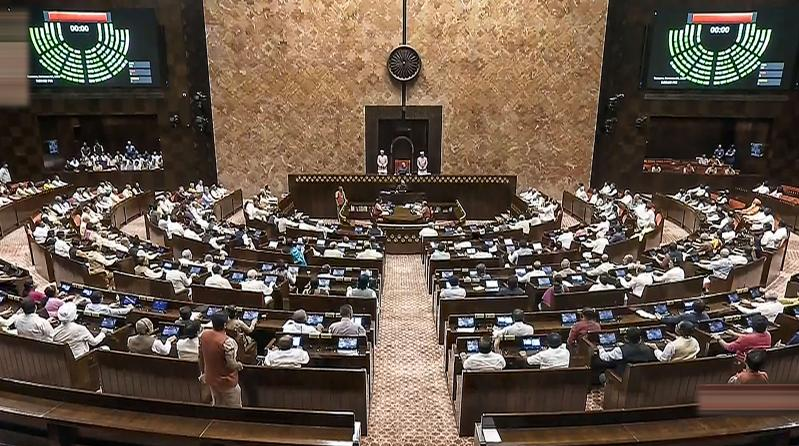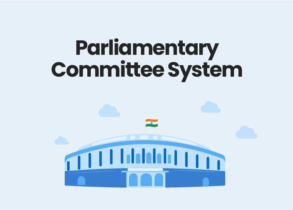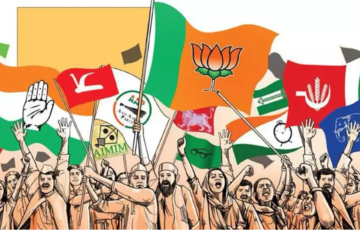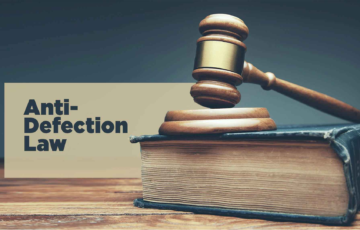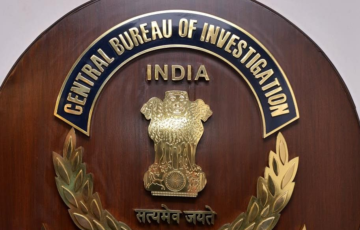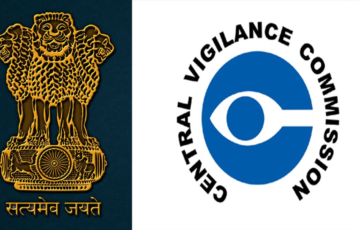PARLIAMENTARY FORUMS
Introduction
- Parliamentary forums are specialized groups or associations within a parliamentary system that bring together members of parliament (MPs) or legislators to address specific issues, concerns, or areas of interest. These forums provide a platform for lawmakers to engage in in-depth discussions, research, and advocacy related to their particular focus areas. Parliamentary forums are typically informal and can be cross-party or bipartisan, allowing members from different political backgrounds to collaborate on common objectives. They play a vital role in raising awareness, conducting research, and influencing policy in areas such as healthcare, education, climate change, human rights, and various other critical topics. These forums enhance the effectiveness and responsiveness of parliamentary bodies in addressing complex and specialized issues, complementing the broader legislative process.
Objectives
The primary objectives of parliamentary forums are as follows:
- Facilitate Interaction and Discussion: Parliamentary forums provide members with a platform for meaningful interaction and discussions on significant issues. They often involve relevant ministers, experts, and officials from nodal ministries to accelerate the implementation of policies and initiatives.
- Raise Awareness and Sensitize Members: These forums aim to sensitize members of parliament about critical areas of concern and the real-world conditions related to these issues. Members receive the latest information, knowledge, technical expertise, and insights from experts, both domestic and international, enabling them to effectively address these concerns in parliamentary proceedings and committee meetings.
- Compile Comprehensive Databases: Parliamentary forums compile comprehensive databases on important issues within their purview. These databases are sourced from various channels, including government ministries, international organizations like the United Nations, non-governmental organizations (NGOs), internet resources, newspapers, and more. This data is then made available to members, empowering them to actively participate in forum discussions and make informed decisions.
Composition
- Ex-officio Leadership: Most parliamentary forums have an ex-officio President who is typically a high-ranking parliamentary official. For instance, in the Parliamentary Forum on Population and Public Health, the Chairman of the Rajya Sabha serves as the ex-officio President. Additionally, there are ex-officio Vice-Presidents, which include the Deputy Chairman of Rajya Sabha, the Deputy Speaker of Lok Sabha, relevant ministers, and the Chairman of department-related Standing Committees.
- Membership Limit: Each forum has a maximum of 31 participants, excluding the President, Co-President, and Vice-President. This ensures a manageable and focused group for discussions and activities.
- Term of Service: Members of these forums serve for the same duration as their membership in the respective houses of parliament. They are representatives who participate in the forum alongside their parliamentary duties.
- Resignation: Members have the option to resign from the forum by writing to the Speaker or Chairman. This provides flexibility for members who may need to discontinue their participation.
Functions of the Parliamentary Forum
Parliamentary Forum on Water Conservation and Management:
- Issue Identification and Recommendations: Identifies water-related issues and offers recommendations for action by relevant governments and organizations. This forum plays a critical role in addressing water conservation and management challenges.
- MP Engagement in Water Conservation: Determines how members of Parliament can actively participate in the conservation and improvement of water resources within their respective states and constituencies.
- Awareness and Education: Organizes lectures and workshops to raise awareness about water conservation and effective management, ensuring that both lawmakers and the public are well-informed about these critical issues.
- Flexibility in Action: Carries out additional tasks as needed to address evolving water-related challenges and opportunities.
Parliamentary Forum on Youth:
- Youth-Centric Development: Focuses on discussions to harness the potential of youth to accelerate development activities. This includes considering policies and initiatives that can empower young people in contributing to socioeconomic progress.
- Public Awareness: Aims to raise public awareness about the role of youth in driving socioeconomic change. This involves educating public officials and grassroots communities about the contributions of young individuals.
- Youth Engagement: Regularly interacts with youth representatives and leaders to gain insight into their aspirations, concerns, and challenges. This dialogue helps shape policies that address the needs of the youth population.
- Strengthening Democratic Engagement: Considers measures to enhance Parliament’s outreach to different segments of the youth population, fostering trust and commitment to democratic institutions. Encourages active participation and engagement in democratic processes
Parliamentary Forum on Children:
- Children’s Well-being: Raise the understanding and attention of parliamentarians concerning critical issues affecting the well-being of children. This aims to enable lawmakers to provide leadership in ensuring the proper development and welfare of children.
- Knowledge Exchange: Provide a structured platform for parliamentarians to exchange ideas, perspectives, experiences, and best practices related to children. This exchange occurs through workshops, seminars, and orientation programs, fostering a more informed and effective approach to child-related issues.
- Engagement with Civil Society: Establish a means for parliamentarians to engage with civil society to raise awareness of children’s issues. This engagement facilitates strategic collaborations in addressing children’s needs and challenges, promoting their well-being.
- Adaptable Assignments: Undertake any additional tasks, projects, or assignments as deemed necessary by the Forum to address evolving concerns related to children’s well-being.
Parliamentary Forum on Population and Public Health:
- Population Stabilization: Focus on concentrated discussions regarding population stabilization measures and associated issues. This includes examining strategies and policies to manage population growth effectively.
- Public Health: Discuss and strategize on challenges related to public health. This encompasses issues concerning the healthcare system, disease prevention, and overall public health initiatives.
- Public Awareness: Raise public awareness about population control and public health at all levels of society, with a particular emphasis on grassroots communities.
- Expert Engagement: Engage in comprehensive dialogues and discussions about population and public health with experts at both national and international levels. The forum interacts with various organizations, including the World Health Organization, the United Nations Population Fund, academic institutions, and government agencies to develop and advocate for effective policies.
Parliamentary Forum on Global Warming and Climate Change:
- Issue Identification and Recommendations: Identify issues related to global warming and climate change and provide recommendations for government and relevant organizations to take appropriate actions to reduce the extent of global warming. The forum focuses on addressing and mitigating the impact of climate change.
- Expert Interaction: Identify opportunities for members of Parliament to engage with experts from national and international organizations working on global warming and climate change. This interaction aims to explore innovative technologies and strategies for combating global warming.
- Raising Awareness: Determine how members of Parliament can play a role in raising awareness about global warming and climate change among the public. This includes advocacy and education efforts to address these environmental challenges.
Parliamentary Forum on Disaster Management:
- Problem Detection and Recommendations: Detect problems in disaster management and provide suggestions and recommendations to government and concerned organizations. These recommendations are intended to address and mitigate the consequences of disasters, such as natural catastrophes.
- Expert Engagement: Identify ways for members of Parliament to communicate with experts from national and international bodies involved in disaster management. The forum promotes collaboration and the development of innovative technologies to minimize the effects of disasters.
- Awareness and Education: Hold seminars and workshops to increase awareness among members of Parliament about the causes and effects of disasters. This educational effort helps lawmakers better understand disaster-related challenges and their impact on society.
Parliamentary Forum on Artisans and Craftspeople:
- Preservation and Promotion of Traditional Arts: Raise the awareness and attention of parliamentarians concerning critical issues facing artisans and craftspeople. The forum’s aim is to ensure the preservation and promotion of traditional arts and crafts through various means.
- Knowledge Exchange: Provide a structured forum for parliamentarians to exchange their thoughts, perspectives, experiences, knowledge, and best practices related to artisans and craftspeople. This exchange occurs through formal discussions, fostering a more informed approach to these traditional skills.
- Expert and International Engagement: Engage in comprehensive discussions and interactions with experts and organizations at the national and international levels regarding issues relevant to the preservation of art and traditional crafts. These discussions are instrumental in promoting and supporting craftsmen and craftspeople.
Parliamentary Forums on Development Goals:
- Development Goals Awareness: Review and enhance parliamentarians’ awareness and attention to crucial issues that impact the achievement of Sustainable Development Goals (SDGs). The forum focuses on addressing challenges related to these global development objectives.
- Civil Society Engagement: Provide parliamentarians with a platform to engage with civil society on issues associated with the Millennium Development Goals (MDGs) and other critical development areas. This includes poverty reduction, hunger alleviation, universal education, women’s empowerment, disease control, and fostering long-term development partnerships.

